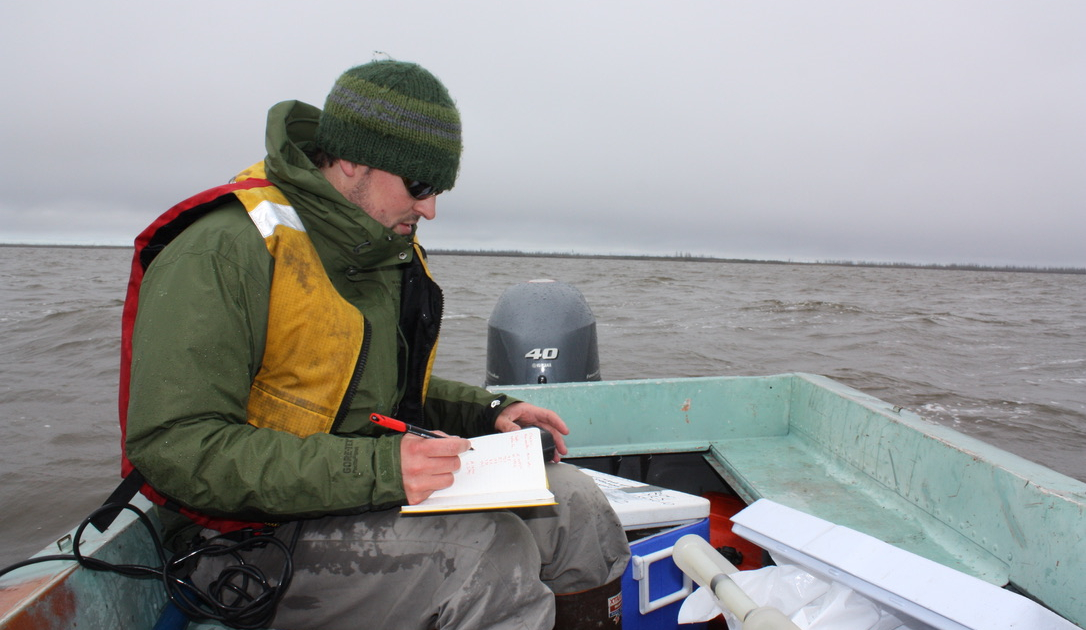Case Study: Dr Paul Mann
Paul is a biogeochemist working at Northumbria University. Biogeochemists study the different chemical, biological and physical processes that create the natural environment we live in.
Ancient carbon
Paul spends many of the summer months in remote regions of Alaska, Canada or Siberia to collect water and soil samples for analysis. Thousands of years ago carbon was ‘locked up’ in the water and soil in these regions. Paul is trying to understand if that ancient carbon is now being released back into the environment.
“We need to understand this, as the release of ancient carbon may speed up climate change in our lifetime.”
SCUBA diving
Paul grew up miles away from the sea in Birmingham, UK. He remembers being told by a careers advisor that he should become a bomb disposal expert because he liked SCUBA diving and science.
“They laughed when I actually said I wanted to become a marine biologist. I grew up thinking I would never (a) be clever enough to go to university, (b) actually teach at a university, and (c) be able to travel to amazing places and do something I love.”
Paul has traveled to many interesting places for work, including living and working in Antarctica for 1½ years. His research has also taken him to the Congo river in Africa, the Mekong river in Asia, and a number of the great Arctic rivers draining Alaska and Siberia.
“I always loved the ocean as a kid, especially snorkelling. I then took up SCUBA diving. At school, I enjoyed science. Combining the two passions felt like the obvious thing to do.”
While studying, Paul has also had numerous other jobs to help pay the bills: working in call centres, door to door sales and banking.
Paul’s advice to young people
“Don’t let others tell you can’t do something. Follow what you want to do, irrespective of how you do in grades. I never got my ‘best’ grades in science. Take time after each step to work out where you are and what you want to do next, don’t be afraid to change direction at any point (you do have time – even if it doesn’t feel like it).”
Paul is currently working on a project called Cacoon, looking at how the Arctic Ocean will respond to changes in the supply of water, carbon and nutrients from land. It’s important to know this because it could influence the climate globally, affecting you, your family and maybe your children. NUSTEM have worked with Paul to create workshops for schools about Cacoon so that he can share his learning with students.
As well as researching biogeochemistry, Paul also teaches undergraduate students studying geography at Northumbria University.




